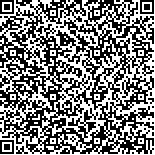| 引用本文: | 曾华平,陈丹,陈红,熊朝栋,洪丽婷,刘秀棉,余文静.玳玳果黄酮降脂提取物在体肠吸收过程和转运机制研究[J].中国现代应用药学,2021,38(3):286-293. |
| ZENG Huaping,CHEN Dan,CHEN Hong,XIONG Chaodong,HONG Liting,LIU Xiumian,YU Wenjing.Research on Intestinal Absorption Process and Transfer Mechanism in Vivo of the Flavonoid Lipid-lowering Extract from Daidai Fruit[J].Chin J Mod Appl Pharm(中国现代应用药学),2021,38(3):286-293. |
|
| |
|
|
| 本文已被:浏览 6758次 下载 3296次 |

码上扫一扫! |
|
|
| 玳玳果黄酮降脂提取物在体肠吸收过程和转运机制研究 |
|
曾华平1,2, 陈丹1, 陈红2, 熊朝栋1, 洪丽婷1, 刘秀棉1, 余文静1
|
|
1.福建中医药大学药学院, 福州 350122;2.福 建省立医院干部特诊科, 福州 350001
|
|
| 摘要: |
| 目的 探究玳玳果黄酮降脂提取物肠吸收部位、过程及转运机制。方法 采用大鼠在体单向肠灌流模型,以提取物效应组分新橙皮苷及柚皮苷为指标,芦丁为内标,运用UPLC-MS/MS技术,建立玳玳果黄酮降脂提取物肠灌流液定量分析法;考察提取物在各肠段的吸收过程及特性;加入外排转运蛋白P-gp抑制剂维拉帕米(verapamil,VP),评价P-gp对提取物吸收的影响及肠道吸收参数(表观吸收系数Papp、吸收速率常数Ka和药物累计吸收百分比P%值)的变化;并以不同质量浓度提取物探究效应组分的吸收转运过程。结果 玳玳果黄酮降脂提取物在不同肠段吸收量顺序为十二指肠>结肠>空肠≈回肠;与十二指肠比较,其他肠段的新橙皮苷及柚皮苷的肠道吸收参数Papp、Ka及P%均有显著性差异(P<0.05),十二指肠的新橙皮苷和柚皮苷的P%约是其余肠段的5~7倍;加入VP后,效应组分新橙皮苷及柚皮苷的Papp、Ka、P%均有显著提高,且在十二指肠的吸收量明显增加,P%约是VP空白组的4倍;提取物高、中、低浓度组柚皮苷的Papp、Ka无显著变化;中、低浓度组的新橙皮苷Papp、Ka随浓度增加略有上升;中浓度组的新橙皮苷Papp、Ka比高浓度组增大,Papp差异有统计学意义(P<0.05)。结论 玳玳果黄酮降脂提取物的主要吸收部位是十二指肠;其效应组分在肠道的吸收受P-gp影响显著,各组分吸收参数变化趋势相同,不存在竞争性或非竞争性抑制作用;低浓度下表观吸收均属一级动力学过程;柚皮苷的吸收机制可能为被动转运,新橙皮苷的吸收机制可能为载体介导的促进扩散。 |
| 关键词: 在体单向肠灌流模型 肠吸收特性 玳玳果黄酮降脂提取物 新橙皮苷 柚皮苷 UPLC-MS/MS |
| DOI:10.13748/j.cnki.issn1007-7693.2021.03.006 |
| 分类号:R965.2 |
| 基金项目:福建省自然科学基金项目(2018J01253);福建省医学创新项目(2016-CX-45);福建省科技计划项目(2010Y2004) |
|
| Research on Intestinal Absorption Process and Transfer Mechanism in Vivo of the Flavonoid Lipid-lowering Extract from Daidai Fruit |
|
ZENG Huaping1,2, CHEN Dan1, CHEN Hong2, XIONG Chaodong1, HONG Liting1, LIU Xiumian1, YU Wenjing1
|
|
1.Department of Pharmacy, Fujian University of TCM, Fuzhou 350122, China;2.Cadre Special Department, Fujian Provincial Hospital, Fuzhou 350001, China
|
| Abstract: |
| OBJECTIVE To study the intestinal absorption site, process and transport mechanism of the flavonoid lipid-lowering extract from Daidai fruit. METHODS Rat in situ single-pass intestinal perfusion model was used, with active parts neohesperidin and naringin as index, rutin as internal standard. Quantitative analysis method of the flavonoid lipid-lowering extract from Daidai fruit intestinal perfusate was established by UPLC-MS/MS. The extract absorption process and characteristics of different intestine segments were observed. P-gp efflux pumps inhibitor verapamil(VP) was added. The effect of P-gp on the absorption of the extract, and the changes in intestinal absorption parameters(apparent absorption coefficient Papp, absorption rate constant Ka, and percentage of accumulative absorption P%) were evaluated. The absorption and transfer process of the active parts were explored using extract samples at different concentration levels. RESULTS The flavonoid lipid-lowering extract from Daidai fruit was absorbed in the following order:duodenum>colon>jejunum≈ileum. Compared with duodenum, the absorption parameters(Papp, Ka, and P%) of neohesperidin and naringin at all the other intestine segments had significant difference(P<0.05). The P% values of neohesperidin and naringin at duodenum was about 5-7 times of those at the other intestine segments. After adding VP, the Papp, Ka, and P% values of the active parts of the extract(neohesperidin and naringin) significantly increased. The amount absorbed at duodenum also showed a significant improvement, with P% value being 4 times of VP blank group. For extracts at all three concentration levels(high, middle, and low), there was no significant changes in the Papp and Ka values of naringin. For extracts at middle and low concentration levels, the Papp and Ka values of neohesperidin increased slowly as the concentration level of the samples increases. For extracts at middle concentration level, the Papp and Ka values of neohesperidin was larger than those for the extracts at high concentration level. The difference in Papp values had statistical significance(P<0.05). CONCLUSION The main absorption site of the flavonoid lipid-lowering extract from Daidai fruit is duodenum. P-gp have significant effects on the intestinal absorption of the active parts of the extract. Both active parts show similar changes for their absorption parameters, which implies that on P-gp efflux pathway, neohesperidin and naringin do not have competitive or non-competitive inhibitory effect on each other. Under low concentration, their apparent absorption at intestine follows the first order kinetics. The absorption mechanism of naringin is probably passive transport, and the neohesperidin is probably facilitated diffusion by vector-mediation. |
| Key words: in situ single-pass intestinal perfusion model intestinal absorption characteristics flavonoid lipid-lowering extract from Daidai fruit neohesperidin naringin UPLC-MS/MS |
|
|
|
|
